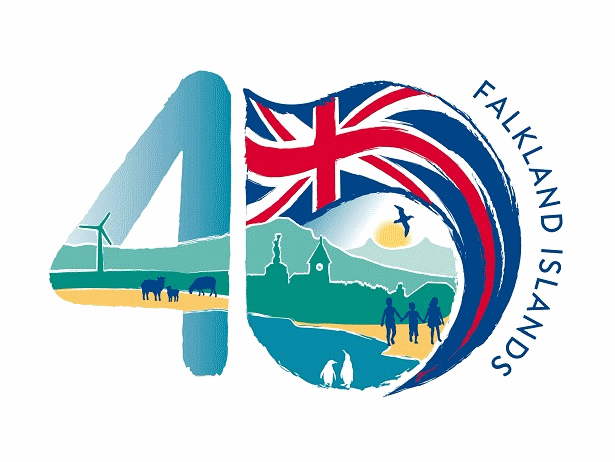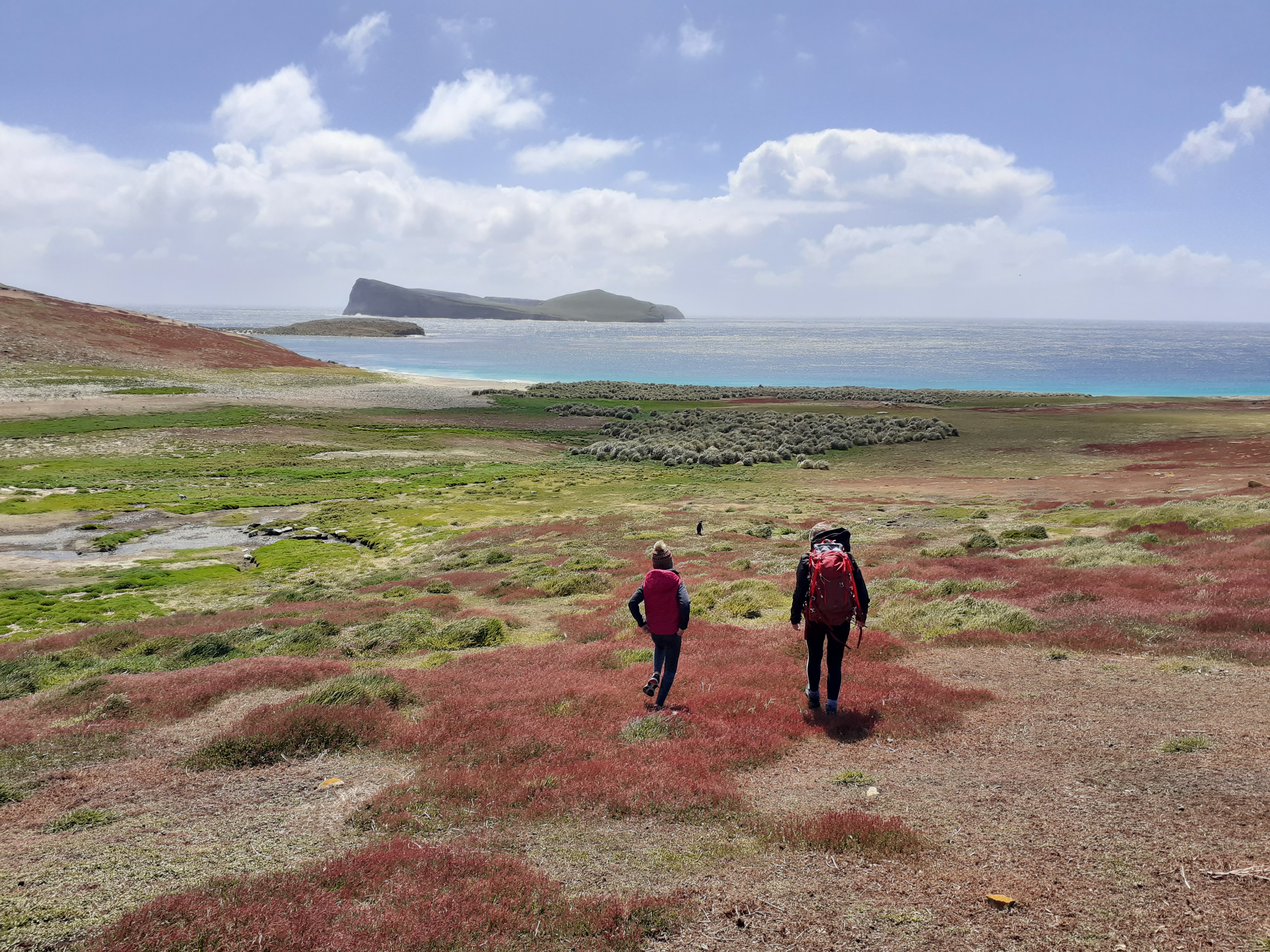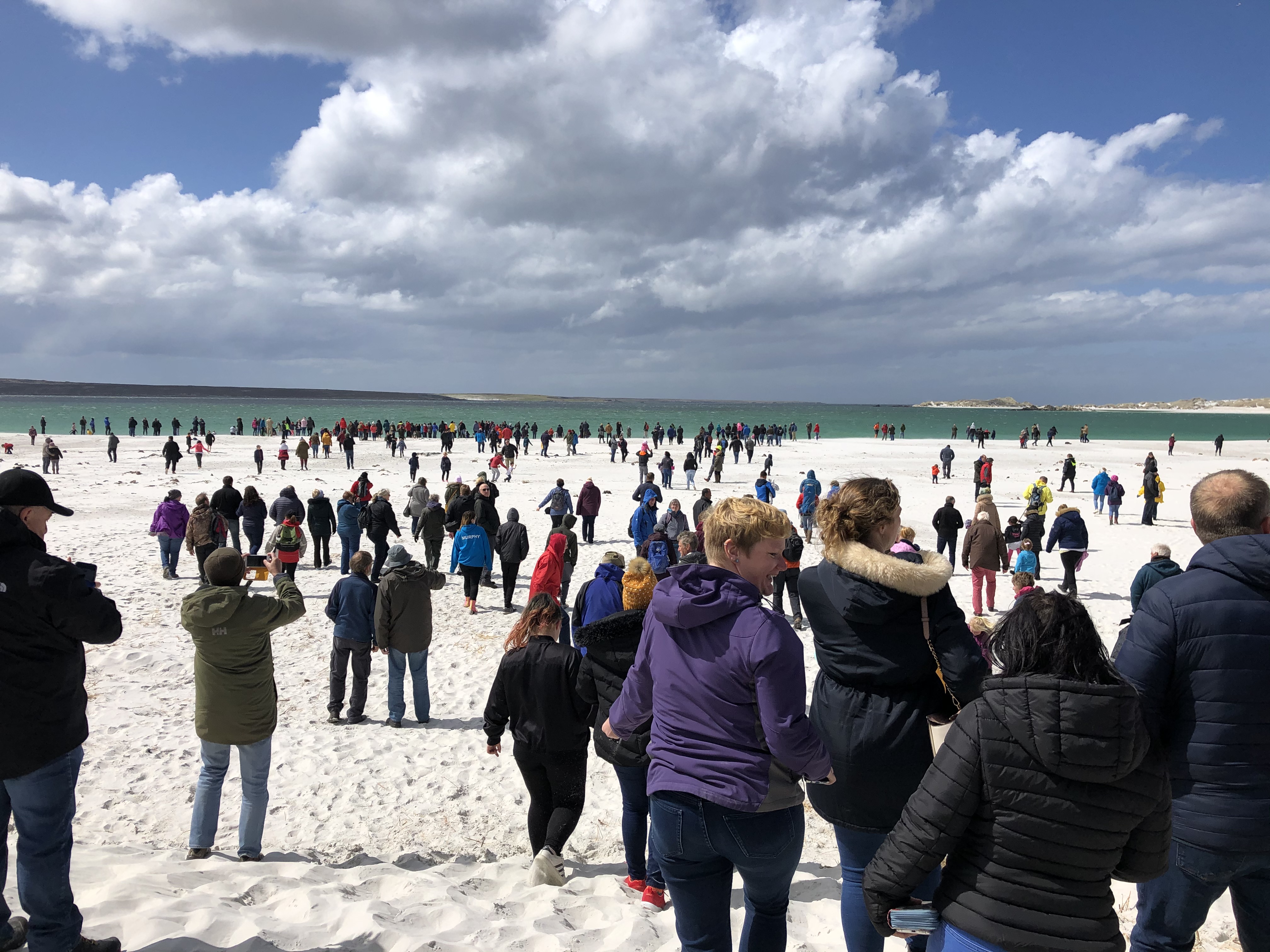Falklands War - 40th Anniversary
In 2022, we will be marking the 40th anniversary of our liberation with a year-long programme of commemoration and celebration. We will be reflecting on the brave sacrifices of those who restored our freedom, as well as showcasing the modern Falkland Islands, our achievements since 1982, and our ambitions for the future. The strapline that sums up the spirit of the anniversary is 'Looking forward at 40’, which sends out the clear message that we are a forward-looking nation, determined to take control of our own destiny and shape our own success.
This programme will be coordinated via the Falkland Islands Government's Committee for the 40th Anniversary of the Liberation of the Falkland Islands, which meets regularly to review our calendar of events and activities. Speaking of our ambitious plans, Committee Chair Phyl Rendell, stated: "I know how important the 40th anniversary will be for many people, which is why we need to make every effort to ensure that we mark the occasion with due respect, and pay tribute to the courage shown and the sacrifices made back in 1982. As a nation, we have moved forward substantially in the past 40 years and it is right that we celebrate how, in exercising our liberty, we have built a prosperous and peaceful country - one which has not simply survived, but thrived. We want to approach this milestone with optimism for the future. We now have a younger generation, born after 1982, who understand how they have benefited from the bravery of others and will continue to build on that legacy."
Please check the website regularly to see our list of events, publications and videos which will mark this momentous occasion. We are also helping to promote other opportunities for third parties connected to the anniversary, and more information on this can be found on our opportunities page. You can also visit the pages of our London Office to find out what activities are planned across the UK to mark 2022: 40th anniversary in the UK
If you're interested in using our specially-commissioned 40th anniversary logo - available in colour and black and white - please visit our licensing page.
We also appreciate that anniversaries of traumatic times can trigger feelings of anxiety, sadness and difficult thoughts. If you need support with your mental health, please visit our emotional wellbeing page.

Our future

Over 40 years after the liberation of the Falkland Islands, we continue to live and work in peace, but it is a peace that is repeatedly threated by the rhetoric of the Argentinian government. An administration that continues to deny us our right to determine our own future, even when that right is a cardinal principle within the UN Charter – the right of a people to self-determination.
Our referendum in 2013, sent a very clear message to the rest of the world about how we wish to shape our own future – as a proud part of the UK family. The UK government continues to uphold our right to determine our own sovereign status and our relationship with them remains close.
While we will never allow false narratives about our history and our home to go unchallenged – what we want more than anything is to be left in peace to choose our own future. You can read our ‘Facts and Fictions’ booklet below.
Our history

The Falkland Islands derive their name from Falkland Sound, the name given to the waterway between East and West Falkland by Captain John Strong, who spent several days in the Islands on his ship Welfare in 1690. Falkland Sound was itself named after Viscount Falkland, one of the owners of Welfare. Captain Strong was the first person to have been recorded as landing in the Islands, although the first reported sighting was by English navigator Captain John Davis in 1592.
The Falkland Islands have never had any native inhabitants and no indigenous people have ever been displaced, instead the Islands were entirely unoccupied until 1765, when they were first claimed by the British who established a garrison at Port Egmont. Over the years, the British, French and Spanish periodically had garrisons within the Islands until 1811 when all were withdrawn.
On 6 October 1832, an Argentine military garrison arrived in an attempt to establish sovereignty over the Falkland Islands, disregarding the British claim of 67 years prior. Less than three months later, on 2 January 1833, the Royal Navy evicted the military base with no loss of life. The civilian population, who had sought permission from Britain to live there, were invited to stay. A year later, a small, permanent British administration was established and in 1845 Stanley become the capital.
We enjoyed a peaceful existence until 1 April 1982, when an Argentine military force invaded our home. For 74 days we lived under foreign occupation, until our liberation by British forces on 14 June 1982. Nearly 1,000 Falkland Islands, British and Argentine lives were lost as a result of the war.
Since 1982, our lives have been transformed, we have become financially self-sufficient and almost entirely self-governing, we determine our own future and way of life. Our community has been formed through voluntary immigration and settlement over the course of nearly two hundred years. We are a diverse society, with people from over 60 nations having made the Islands their home. At our heart are those Falkland Islanders whose families have been in the Islands for nine generations.
In 2009 our new Constitution was established which provides enhanced local democracy, internal self-government and enshrines the right of self-determination. Four years later in 2013, we held a referendum which was overseen by international observers, where 99.8% of the electorate voted to remain a British Overseas Territory.

Our people

More than 3,200 people live in the Falkland Islands from more than 60 countries, including 10% from Saint Helena and 6% from Chile. Many Falkland Islanders can trace their heritage back through nine generation, stretching back over 200 years. This diversity influences the culture of the Islands which values fairness and tolerance.
At the time of the 2016 census, 87% of people were under 65, with the average age being 38. There is almost zero unemployment in the Falkland Islands, with many people undertaking more than one job, and 49% of all adults have some post-secondary or vocational qualifications.
Education in the Falkland Islands is free and both primary and secondary education is available for all children aged 3 to 16. Beyond the age of 16, young people have access to both higher and further education abroad, which is funded by the Falkland Islands Government. 85% of students who leave to study abroad choose to then return to live and work in the Islands.
Although a small community, Falkland Islanders benefit from a range of local front-line services – health, police, fire and rescue – as well as many leisure and social amenities. In Stanley there is a leisure centre which supports a range of sporting activities, including swimming, hockey, badminton, netball, indoor football, bowls, table tennis and volleyball. Golf, full-bore target shooting, cricket, running, archery and athletics are also popular.
There are many youth groups, including Rainbows, Brownies, Scouts and Girl Guides, as well as sports and conservation clubs for younger people. Stanley Harbour provides a base for sailing, windsurfing, jet-skiing and kayaking, and there are a number of wreck dives available for underwater enthusiasts. Other outdoor activities include walking, riding, motocross and fishing. Popular dates in the calendar are the annual horse-racing meet at Christmas, and Sports Week, traditionally held at the end of the shearing season.
Our Community Directory is our one-stop-shop for information on all local services and amenities that support and enhance the quality of life for people in the Falkland Islands.
Click here to view a publication which features the stories of local people and which was developed to mark the occasion of the 30th anniversary of the Falkland Islands liberation

Our home

The Falkland Islands have been our home for nearly 200 years and nine generations of Falkland Islanders have been born and raised in our beautiful and remote Islands. We are a growing, diverse and resilient island community that has prospered over time, thanks to the pioneering efforts and the ingenuity of the generations of people who have chosen to make this archipelago their home. Ours is a small community, one based on mutual respect and self-reliance. There can be few safer communities in the world, with very little crime or need to lock our cars or houses.
As a British Overseas Territory with full internal self-government, our culture is founded on the principles of democracy, fairness, hard work and collaboration. You can read more about our political system by visiting this section of our website: Our politics.
The Falkland Islands Government provides a vital range of services – including those managed elsewhere by central government and local authorities. Responsible for taxation, legislation and policy, town planning, health and social services, the local air service and education – the Falkland Islands Government is far more than just an administration. From the provision of power and fresh water, to building infrastructure and carrying out scientific research, the government fulfils a variety of roles, making it the largest employer in the Islands.
Sometimes referred to as ‘one of the last great wildernesses of the world’ – the Falkland Islands has a unique natural environment, which plays a central role in the sustainable development of our economy, community and our nation as a whole. We have already taken significant steps towards living more sustainably, but there is much more to be done, and this work is being coordinated by our Environment Department.
Did you know?
- The Falkland Islands are a United Kingdom Overseas Territory and their discovery was first reported in August 1592 by a British navigator Captain John Davis aboard the ship ‘Desire’
- The Falkland Islands flag commemorates this first sighting and the ship is also referenced in the motto of the Falkland Islands ‘Desire the Right’
- Geographically, the Falkland Islands were once part of East Africa and, as such, we have some interesting and unusual landscape features, such as stone runs which are ‘rivers’ of boulders; the highest points are Mount Usborne on the East (705m) and Mount Adam on the West (700m)
- The Falkland Islands are an archipelago, consisting of two main islands (East and West Falkland) and 778 smaller islands, with a total area of approximately 4,700 sq. m (half the size of Wales)
- The Falkland Islands are situated in the South Atlantic, some 400 miles from the South American mainland and 850 miles north of the Antarctic Circle
- The climate is characterised by a narrow temperature range ranging from 24°C in January to -5°C in July; the highest points are Mount Usborne on East Falkland (705m) and Mount Adam on West Falkland (700m)
- Our capital city – Stanley – is home to over three quarters of our 3,500 population, with the remainder living in Camp, including the Outer Islands, on farms and settlements
- 90% of electrical power in Camp is provided through the use of wind turbines and in Stanley 40% of energy is produced by the Sandy Bay Wind Farm
- We are economically self-sufficient with most of our income coming from fishing, agriculture and tourism; we are also self-governing, except in two areas – foreign affairs and defence
- In March 2013, 99.8% of the electorate voted in a referendum to remain an Overseas Territory of the United Kingdom

For more information on our home, please see the presentation below or have a look at our ‘Visitors’ section.
